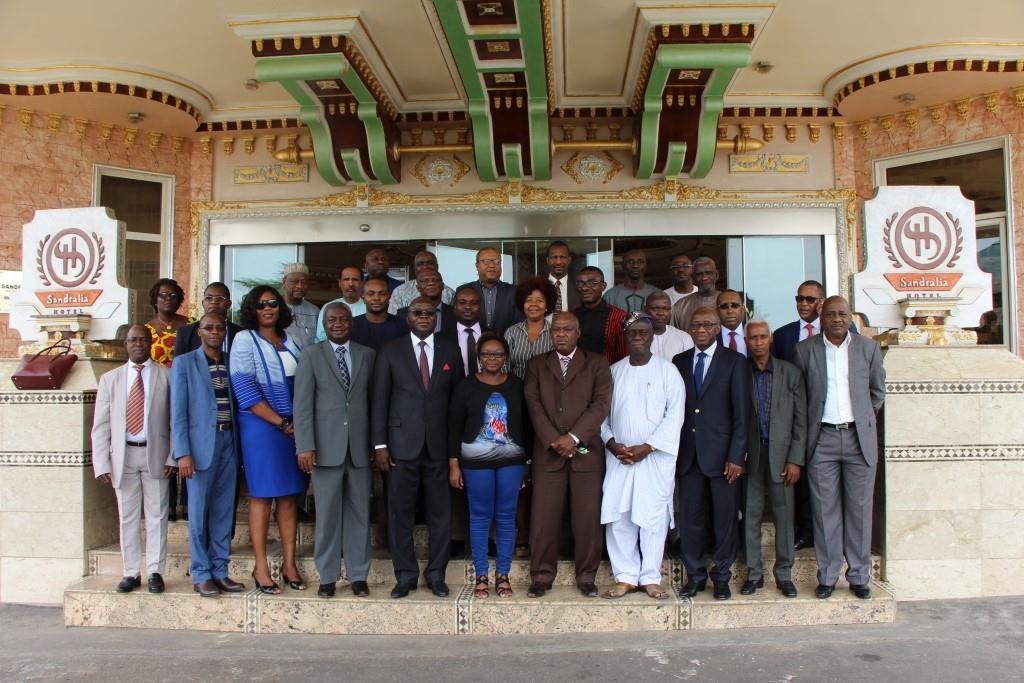 Abuja 26th May 2017. The ECOWAS Commission is partnering the organised private sector in West Africa towards developing an all-inclusive regional Customs Code. Abuja 26th May 2017. The ECOWAS Commission is partnering the organised private sector in West Africa towards developing an all-inclusive regional Customs Code.
In line with this, a draft Community Customs Code is being reviewed by stakeholders, officials and experts so that the regional private sector can make desirable inputs to the code in the context of promoting economic activities such as imports, exports, transit of goods across borders and also make recommendations for the improvement of the quality of community regulations which reflects the socio-economic realities of the region.
Opening a Three-Day consultation Workshop with the Private Sector on the Draft ECOWAS Customs Code in Abuja, Nigeria on the 24th of May 2017, the ECOWAS Commissioner for Trade, Custom and Free Movement Mr. Laouali Chaibou noted that it is very important for the sector to be heard as the region seeks a harmonised legal infrastructure which addresses all the issues affecting customs legislation.
Represented by the Principal Programme Officer, Customs Procedures Mr. Felix Kwame Kwakye, the Commissioner said the workshop represents a genuine effort aimed at the creation of a common market in accordance with the objectives set by Heads of State and Government, through the revised ECOWAS Treaty.
He maintained that new international instrument on the simplification and harmonization of Customs procedures of the World Customs Organization, known as the revised Kyoto Convention (in force since February 2006 and which some ECOWAS Member States have also ratified) which dwells on transparency, simplification of customs formalities, reduction of taxes and freedom of transit, should also guide the development of ECOWAS Community customs code.
The aim is to “accelerate the movement, release and clearance of goods, including goods in transit, and to promote partnership between Customs Administrations and the private sector” He added.
Apart from the reduction of barriers to trade and foreign direct investments, the Commissioner stressed that the draft Community legislation should also reflect the new role and mission of the Customs Administrations, which ‘should thus evolve from repressive or coercive administrations to genuine development administrations’ and create an environment that is conducive to the competitiveness of enterprises needed for the economic development of the region.
He also called on the workshop participants to consider the possibility of evolving a Charter of services between Customs Administrations and the private sector to ‘define the expectations that each party has to the other’ as well as to define the parameters for the expected level and quality of services.
The President of Federation of West Africa Chambers of Commerce and Industry (FEWACCI) Mr. Germain Essouhouna Meba stressed that the Workshop on common Custom code is coming at the right time for according to him, without free movement of people and goods, integration is jeopardised.
Noting that the workshop has been organized to complement the existing legal framework governing trade in the region, he stressed the importance of the involvement of private sector in the initiation, formulation and implementation of the phase of all trade measures and policies relating to regional economic integration because it enables the sector to ‘make our positions clear and take ownership of it in order to facilitate their implementation’
The Workshop under aegis of Promoting West African Trade Integration (WATIP) is also meant to support and promote the regional economic growth, define customs procedures that are designed to promote the development of certain economic activities and strengthen the competitiveness of enterprises in the regional market, in particular with a view to opening the framework of the Economic Partnership Agreement (EPA), by introducing mechanisms that vary according to the activity concerned.
Participants are drawn from the regional Private Sector, officials from responsible ECOWAS Directorates and ECOWAS sister agencies.
|




